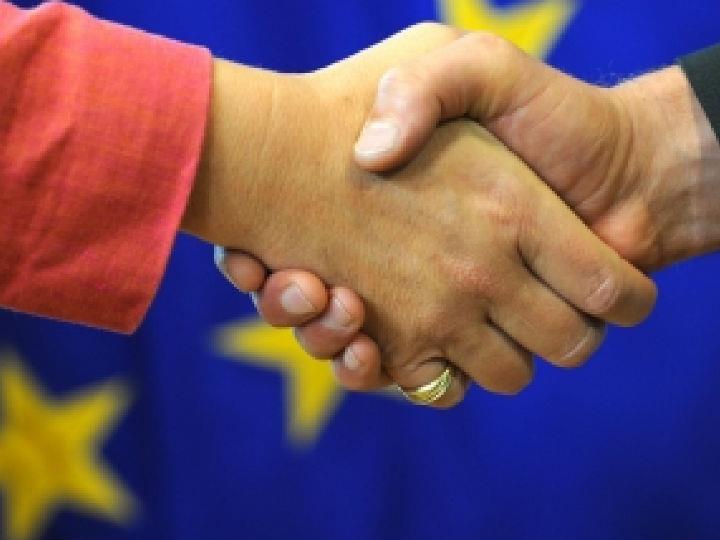by David Harrison, Dr Alexandra von Westernhagen, Joshua Silver, Stephen Hocking, Takis Tridimas and Ulrike Guerot*
Solidarity is on the rise in Europe:
On 21 July the EU heads of state reached agreement on an unprecedented financial package, including an EU recovery fund called ‘Next Generation EU’ (NGEU). NGEU, which is tailored to tackle the crisis that is unfolding worldwide as a result of Covid-19, sees the EU borrow from capital markets to finance expenditure throughout the Union.
€85 billion and €71 billion of the overall €390 billion foreseen in grants will go directly to Italy and Spain respectively in order to help these EU member states to restore their economies deeply hit by Covid-19.
‘This is a historic day for Europe’, French President Emmanuel Macron said in the early hours of 21 July.
Earlier that month and across the channel, the UK government decided to smooth the path to British citizenship for around 3 million Hong Kong residents after a new national security law was imposed in the city.
The new measures extend the visa rights of British National (Overseas) passport holders, to which all 3 million Hong Kongers are eligible. This includes the right to stay in the UK for five years (instead of previously six months) with the ability to work or study.
“…we will not look the other way on Hong Kong, and we will not duck our historic responsibilities to its people,” said UK Foreign Minister Dominic Raab in the UK Parliament on 2 July, referring to the fact that the city was a British colony for over 150 years before it was transferred back to China in 1997.
Compared with these extraordinary measures of solidarity, it is somewhat surprising that neither the EU nor the UK saw any issue with the en masse deprivation of Union citizenship and related rights for over 65 million UK nationals when negotiating the Withdrawal Agreement on the basis of which the UK left the EU as a member state on 31 January 2020.
The Withdrawal Agreement, in its Article 2, draws a distinction between UK nationals and EU citizens and therefore de facto removes the status of Union citizen from all UK nationals.
As a result, UK nationals will no longer be able to exercise any of the rights related to Union citizenship following expiry of the so-called interim period (supposed to end on 31 December 2020). In particular, they will not be able to freely move and settle around the continent, a right that every Union citizen has.
Even for those UK nationals who are already residing in continental Europe (or will be doing so before the end of the interim period), these so-called free movement rights have been reduced to a right to reside in the country of current choice.
Several court challenges had been brought from the Netherlands and France during the negotiation of the Withdrawal Agreement, challenging the basis of this understanding.
In particular, nowhere in the EU treaties is it explicitly stated that Union citizenship is dependent not only on having the nationality of one of the EU member states to acquire it, but also to retain it throughout the lifetime of its holder.
To the contrary, a look back into the history of the making of the EU and its predecessors indicates that Union citizenship, once acquired, is supposed to create a bond that is in principle inseparable between all holders, based on common values, such as freedom, equality, democracy, the rule of law as well as the protection of rights, including the rights of minorities (Article 2 of the Treaty on European Union).
The French and Dutch court cases were all rejected, with the (national) courts arguing – amongst other things – that a court challenge against the Withdrawal Agreement in the making would be ‘premature’.
So the Withdrawal Agreement was signed off by the Council of the European Union on 29 January 2020, with no change being made to the fundamental distinction between UK nationals and EU citizens.
Several court challenges are currently pending against this distinction in the Withdrawal Agreement.
One of them is a court challenge brought from the UK on 23 April 2020 (Case T-252/20).
With it, seven UK nationals are asking the General Court of the Court of Justice of the European Union to confirm their understanding of Union citizenship as a personal, fundamental right that cannot be taken away without the individual holder having explicitly consented to such a removal.
The defendant is the Council of the EU itself, but the case does not challenge the legality of Brexit. If successful it means that while the UK will have left the EU as a nation, UK citizens will enjoy the same rights they had before Brexit to travel, work and settle within the EU.
The outcome of this case (which is entirely crowdfunded), in relation to which the Council of the EU has just sent its defence, will not only have a fundamental impact on the UK nationals concerned. Whether EU citizenship is a permanent status that belongs to the individual or not is a question of principle which rests upon the nature of the European Union:
Is it a Union for its member states only? Or is it also a Union for and between the people(s) of Europe?
This is a fundamental question for all 515 million EU citizens and everybody else who believes in the idea of supra-national, value-based citizenship of equals.
In line with the current resurgence in solidarity in Europe, it should be answered clearly in favour of solidarity: the European Union is a union between the peoples of Europe.
*founder of the European Democracy Lab and professor of physics at Oxford University and barrister with Matrix Chambers and solicitors of DAC Beachcroft
**first published in: www.euractiv.com




 By: N. Peter Kramer
By: N. Peter Kramer

